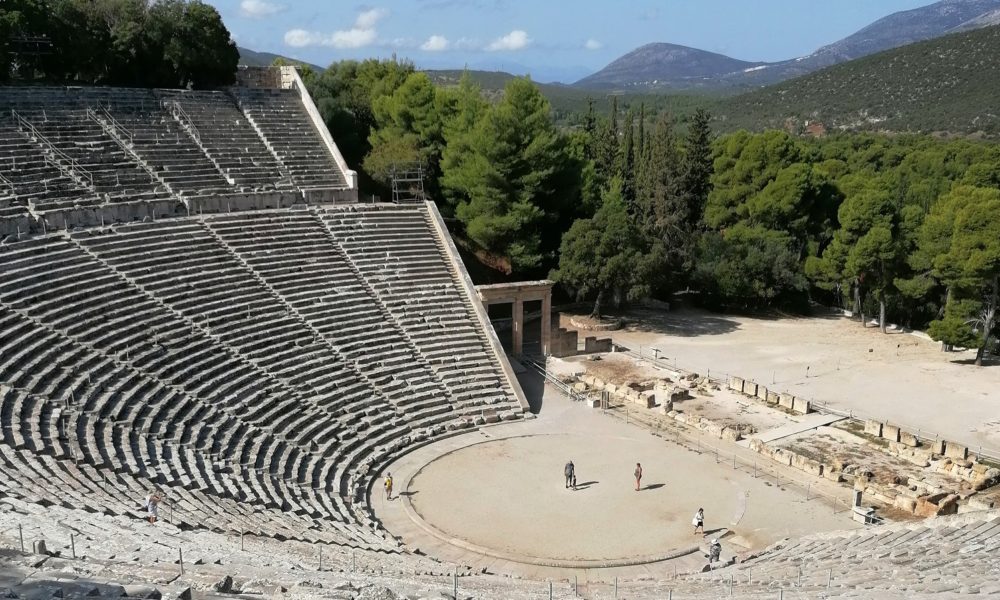The breath of history

37° 35′ 53.3070” N 23° 4′ 29.717” E
15th october 2020
The city of Epidaurus on the Peloponnese is steeped in history. Since 400 years before the birth of Christ, people have made the pilgrimage to experience music and drama in the famous amphitheater and to be healed in the temple of Askeplio, which was the ancient version of a a health clinic. It’s a huge experience to see it. Both the amphitheater and the archeological excavations of temples and health hotels.
The amphitheater is remarkably well preserved, but also the small museum with the best of the excavated busts, tools and pillars is worth a visit. We are lucky it’s corona time. The world thinks that Greece too has been put down by the corona, so we have most of it to ourselves, and you can without hesitation stand up on the stage of the amphitheater and sing a song for your family, who is sitting on the 55th row and clapping gratefully, because the sound conditions are absolutely unique. While the song may not be spectacular itself, when song by yourself, it is at least remarkably loud, as if you are singing through a megaphone. The ancient Greeks really knew something about architecture and engineering
The port we are in is called Palaia Epidhaurus. Here Greeks sit from morning to evening on the pier and fish for squid, small fishing dinghies sail out early in the morning, and only a few yachtsmen find their way into the harbor.
It is strange to look at restaurants that have been built to accommodate maybe 100 guests at a time and now there are just four guests sitting. The season is coming to an end, and on top of this, the corona has knocked down the number of visitors to a quarter of normal. Only six out of ten hotels in Greece have reopened after the first wave of the corona, and these hotels have an average occupancy rate of just 30 percent.